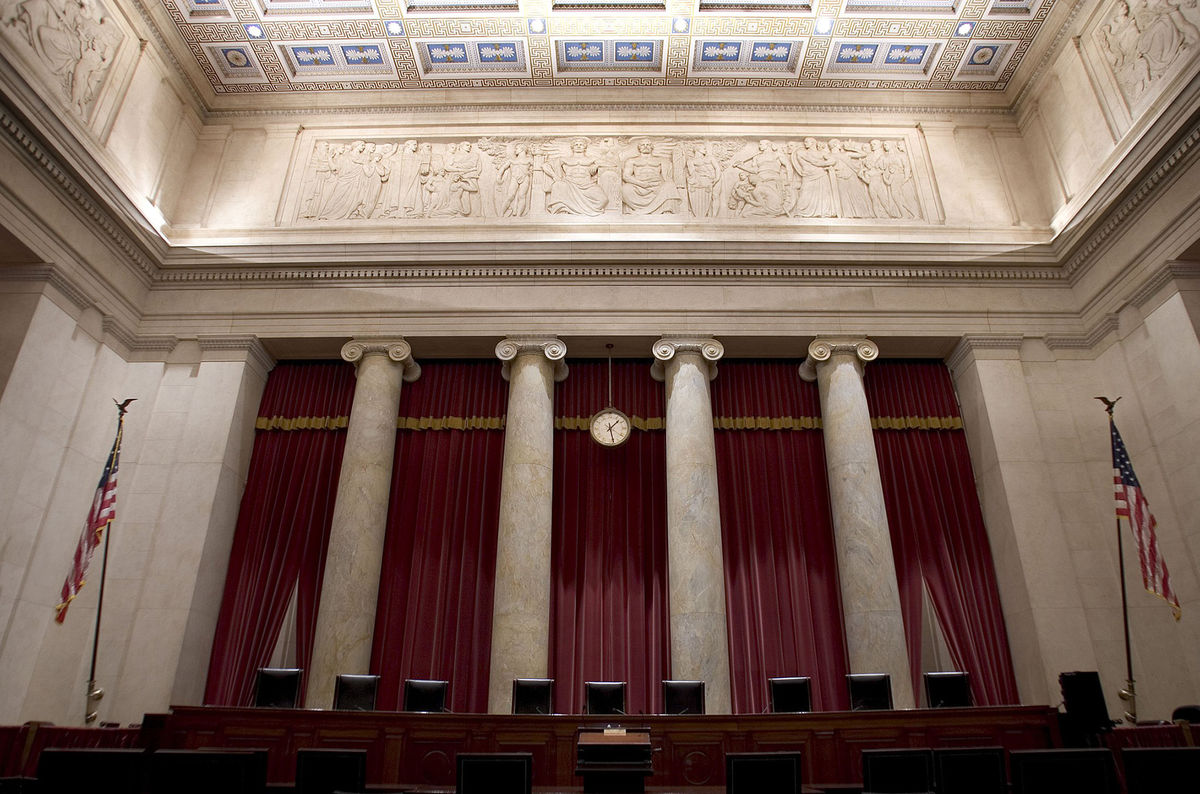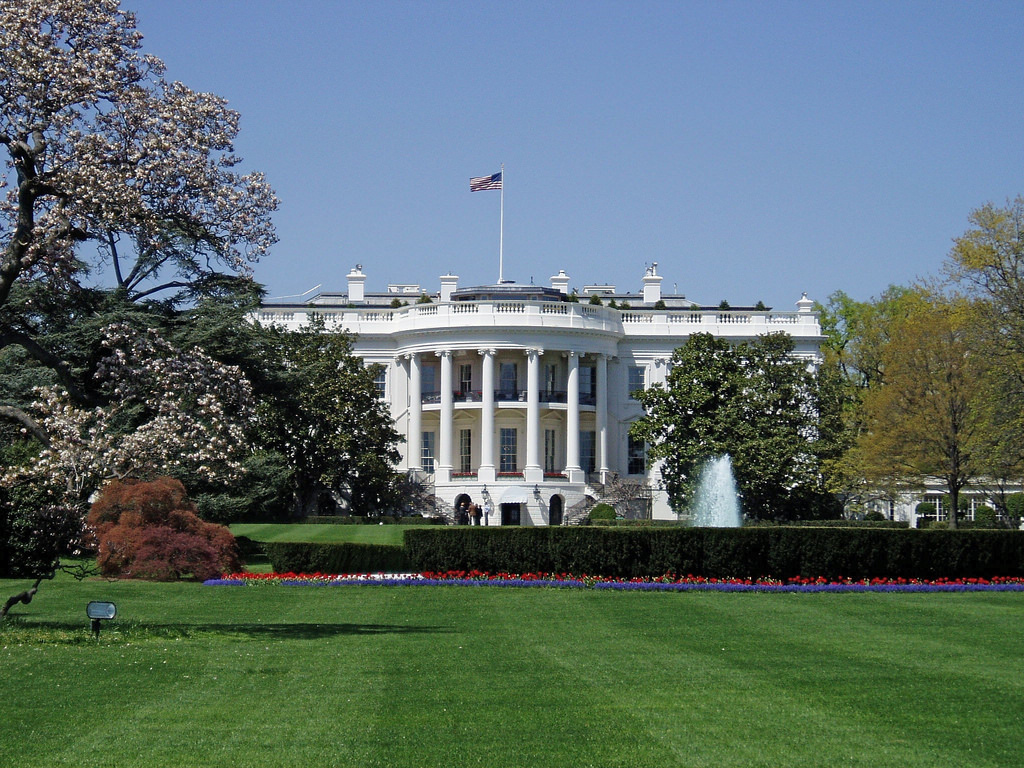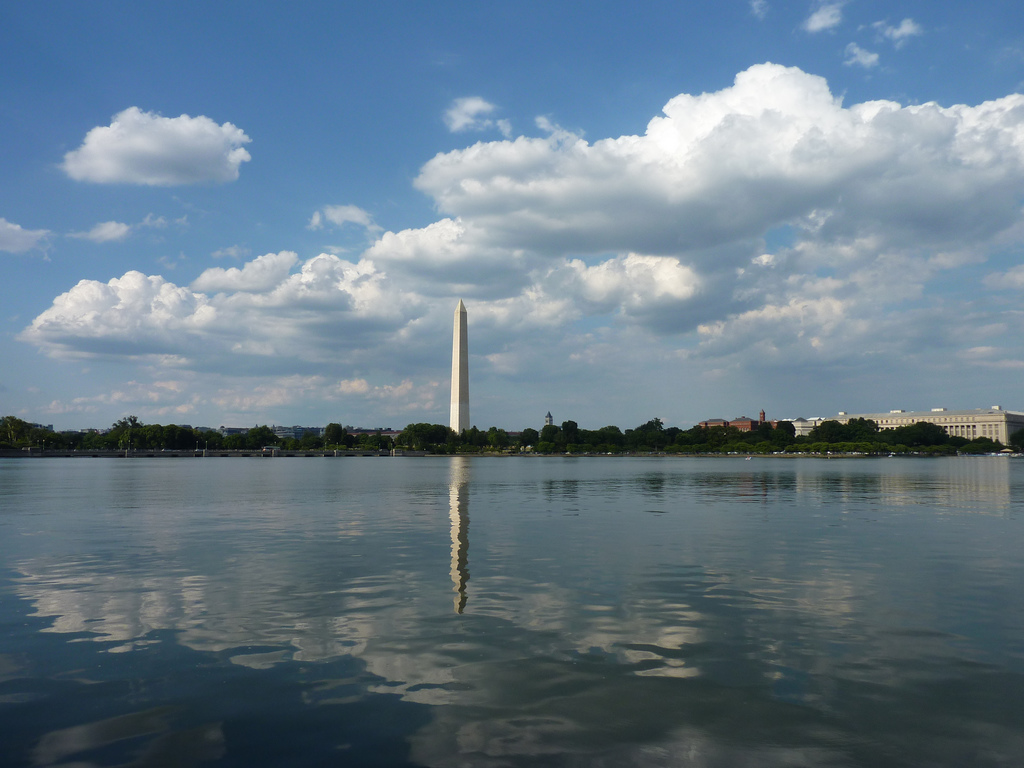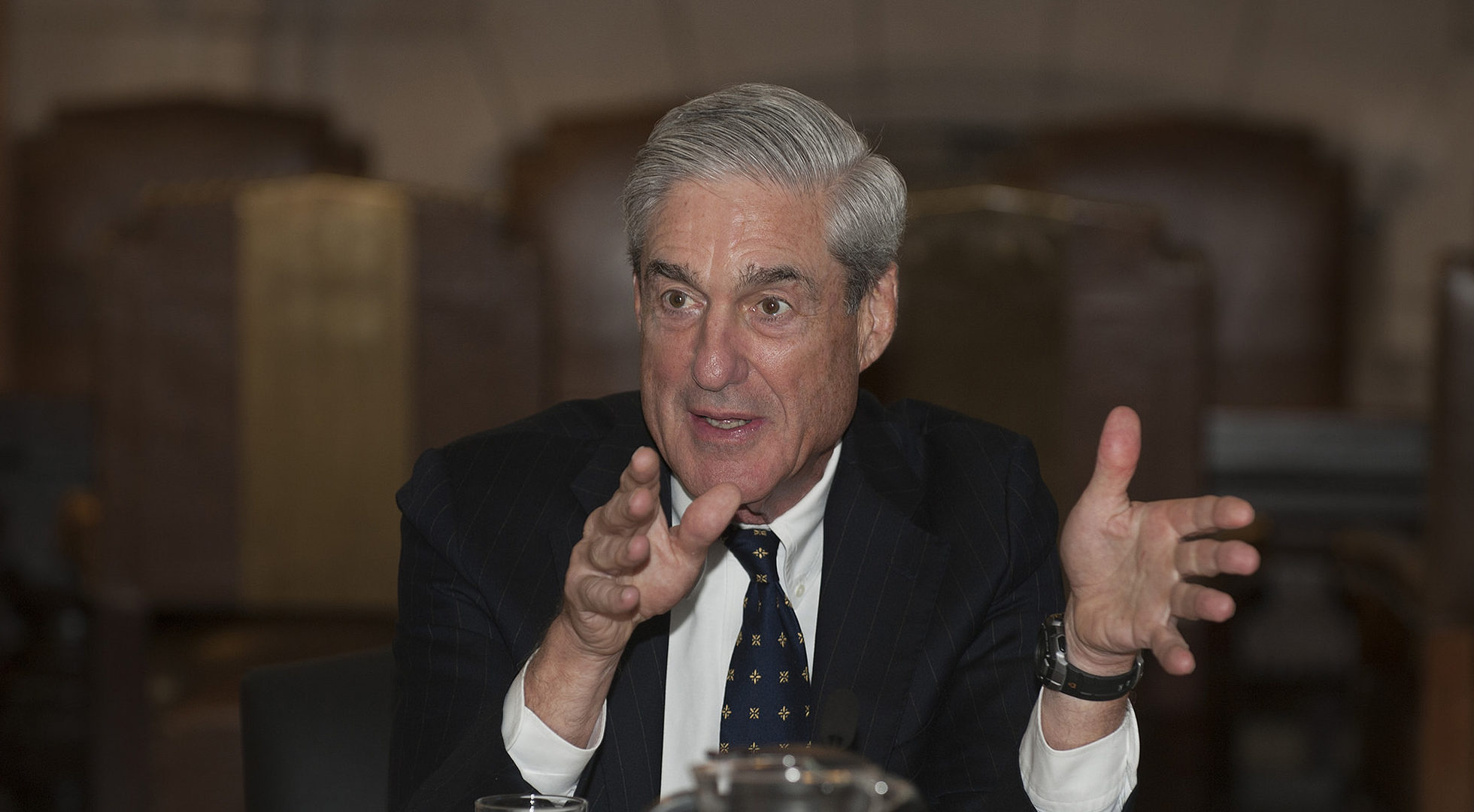In a 5-4 decision, the justices upheld the enforcement of the ban on transgender military service members while litigation continues as it returns to the 9th Circuit Court of Appeals for further proceedings.

Virginia's Public Square
Virginia's Public Square

In a 5-4 decision, the justices upheld the enforcement of the ban on transgender military service members while litigation continues as it returns to the 9th Circuit Court of Appeals for further proceedings.

As the partial government shutdown rolls through day 30, President Donald Trump rolled out a plan this weekend that includes funding for the proposed southern border wall, teamed with revitalized protections for certain groups of undocumented immigrants. While the commander in chief’s olive branch was praised by those near the political center, it did draw ire from conservative immigration hard-liners and Democrats, who called the measure a “non-starter.”
The plan includes a three-year extension of protections for over 700,000 undocumented immigrants shielded from deportation under the Obama-era Deferred Action for Childhood Arrivals (DACA) program. In exchange, $5.7 billion in funding would be dedicated to the U.S.-Mexico border wall.
Nevertheless, Trump has backed off of his hundreds of miles of wall request, now proposing only a strategic deployment of steel barriers at high priority locations. His funding request also includes $800 million for humanitarian assistance, $805 million for drug detection technology, 2,750 more border agents and law enforcement officers, and 75 more immigration judges, according to The Hill.
Senate Majority Leader Mitch McConnell (R-KY) has promised Trump that his package will be brought to the floor of the upper chamber this week.
For the few Republicans and conservative talking heads that called the president’s plan amnesty, he responded to those claims via Twitter.
No, Amnesty is not a part of my offer,” Trump said. “It is a 3 year extension of DACA. Amnesty will be used only on a much bigger deal, whether on immigration or something else.
Regardless, Speaker of the House Nancy Pelosi (CA-14) and Senate Minority Leader Schumer (D-NY) signaled that they would not take up the deal.
Accosting the opposition party and charging them to take the deal to re-open the federal government, the president added, “Nancy Pelosi and some of the Democrats…don’t see crime & drugs, they only see 2020 – which they are not going to win…They should do the right thing for the Country & allow people to go back to work.
Considering congressional Democrats have refused to take up Trump’s plan, they have shown that pride is more important than compromise – even if it means 800,000 federal workers continue to be furloughed as 25 percent of the U.S. government remains closed.

The Senate confirmation hearing for William Barr, President Donald Trump’s new pick for attorney general, began Tuesday morning, seemingly less contentious than the hearings that dominated autumn 2018 with Supreme Court Justice Brett Kavanaugh. Barr served as the 77th Attorney General under the late former President George H. W. Bush from 1991 to 1993.
The Reagan-era policy staffer was known as a strong defender of presidential power and aggressive actions on terrorism and drug-trafficking. Regardless, during his 1991 confirmation hearing he received a good reception from both Republicans and Democrats.
One of the biggest issues surrounding the confirmation of Barr is how he will handle White House Special Counsel Robert Mueller’s investigation into Russian collusion into the 2016 presidential election. Many on the Senate Judiciary Committee prompted Barr to reveal if he would act to protect the president if the eventual release of the report would incriminate the commander in chief.
With talk of the upcoming departure of Deputy Attorney General Rod Rosenstein, who has been at odds with President Trump in the recent past, Barr explained that he has nothing to do with the decision. Although Barr would be allowed to choose his deputy for the Department of Justice (DOJ), he reiterated that he has asked Rosenstein to stay on for “a period” if he is confirmed.
Barr also answered questions on whether he would allow Trump to direct him in the Russia investigation, after ousted Attorney General Jeff Sessions recused himself in the weeks after the president’s inauguration – an issue that began the tumultuous relationship between the two.
“I will not be bullied into doing anything I think is wrong,” Barr said.
Recently, however, Senator Kamala Harris (D-CA), a widely-speculated 2020 Democratic presidential candidate, believes Barr should recuse himself from overseeing Mueller’s investigation.
On Tuesday, senators Richard Blumenthal (D-MA) and Dianne Feinstein (D-CA) charged that Barr that he must act as a fully independent attorney general, regardless of the wishes of the president, who has said that he does not want a DOJ head that will recuse himself. Furthermore, Feinstein prodded Barr to commit to not interfering in the Russia probe.
“The special counsel’s investigation is set by his charter and by the regulations, and I will ensure those are maintained,” Barr said, adding that he will not terminate the investigation “without good cause.” He also said the special counsel “is not involved” in a witch hunt.
Although Senate Judiciary Chairman Lindsey Graham (R-SC) said the process to confirm and the subsequent responsibilities of Trump’s pick for attorney general “will be challenging,” he expressed confidence in Barr during the questioning insofar as Mueller’s investigation is concerned. Barr said Mueller will be allowed to continue the investigation, making the results public, consistent with federal regulations.
“I believe it is in the best interest of everyone…Bob will be allowed to finish his work,” he said, who also has a friendly relationship with the special counsel.
As the confirmation hearings continue, Barr will also be grilled on presidential powers, immigration enforcement, abortion and the validity of Roe v. Wade (1973), the handling of enemy combatants and the constitutionality of torture, protections for journalists, and his past actions in previous administrations.
If Barr becomes the 85th attorney general, he will be the first to repeat the position since its inception in 1789. He will replace acting-Attorney General Matt Whitaker who was thrust into the position following his tenure as chief of staff to former Attorney General Sessions after a two-year, mostly bad-tempered relationship with President Trump.

Blasting past economists’ expectations, the U.S. added 312,000 jobs in December 2018, an encouraging sign of performance in an economy that has been hit by rising interest rates, a three-month wave of chaos on Wall Street, slowing international growth, tariff battles with major trading partners, and a partial government shutdown coming up on its third week. The U.S. Labor Department also reported Friday that the unemployment rate rose slightly from 3.7 percent to 3.9 percent; however, it reflects a pro-growth increase in people entering a still-hot job market.
“With more than 5,000,000 jobs added since the 2016 election, the American economy surpassed 150,000,000 jobs for the first time ever,” Labor Secretary Alexander Acosta said in a press release from the department. He added that more people having confidence in the job market “is welcomed news as job creators look to fill seven million open jobs.”
In the report, upward revisions were also given to the October and November jobs reports, which now saw a total of 370,000 jobs added to the economy.
Significant job gains in December were seen across all industries, with the construction, retail, manufacturing, education, healthcare, food services, and leisure and hospitality sectors leading the way.
Healthcare and education services added 82,000 jobs in December, the biggest jump since February 2012. Restaurants saw a gain of 40,700 jobs, construction added 38,000, manufacturing increased by 32,000, and retail was up by 23,800 on the nationwide payrolls.
Average hourly pay ticked up 3.2 percent from December 2017, with last month being the third straight wherein year-over-year wage gains exceeded three percent. Prior to October 2018, the last time average hourly wage gains exceeded that figure was April 2009, according to the Labor Department.
Overall, 2.6 million new jobs have been created in the past 12 months, and of those months, eight saw the unemployment rate under four percent, with record jobless lows in 2018 for African-Americans, Asian-Americans, Hispanic-Americans, and those without a high school degree.
Recently, economists believed the U.S. was edging near “full employment,” but the numbers show that prospective workers still have confidence in employers hiring in a tightening job market. Although December’s numbers were almost 50 percent above the 2018 monthly job creation average of 217,000, economists estimate that hiring will slow in 2019. With America beginning to enjoy its 10th year of economic expansion, the past few months have shown the effects of slowing growth caused by waning returns from the 2017 Republican-led federal tax overhaul teamed with aggressive interest rate hikes from the U.S. central bank.
Stocks tumbled during the holidays, leading to the worst Christmas Eve ever on Wall Street, met with rising concerns over slowing economic growth that has caused major industry firms to fall past correction territory, and the S&P 500 index on pace for its biggest percentage fall since the Great Depression. However, Wall Street responded well to the December jobs report, with the Dow Jones Industrial Average up over 700 points midway through the Friday trading session after the index also suffered its worst December decline since 1931.
President Donald Trump, who has enthusiastic about the “GREAT” jobs report on Twitter, may not see similar figures in January if the partial government shutdown – affecting approximately 800,000 federal employees and 25 percent of the federal government – lingers on, spurred by a stalemate between the White House and a new Democratic majority in the House of Representatives over funding for the U.S.-Mexico border wall.
In a report from AP, Chairman Kevin Hassett of the White House Council of Economic Advisers, said that next month’s report from the Labor Department “could be weak” if the shutdown continues. He explained that the hundreds of thousands of government workers “who could say they’re not working, which would lower the job totals….even though those workers would be paid back wages once the government fully re-opened.”
“So when we see the January jobs number,” Hassett said, “it could be a big negative.”
Other economic concerns for this year may involve Federal Reserve Chairman Jerome Powell, who has come into the president’s cross hairs over the past few months after four quarter-point interest rate hikes in 2018. The market will have to weigh whether the strong job growth in December encourages the Fed to raise rates aggressively in 2019. Regardless, a downshift in economic growth worldwide could slow the process of the central bank working to clear its balance sheet.
Tariffs, of course, play a big role in the equation with slowing worldwide growth as major U.S. trading partners are hit with retaliatory duties amid Trump’s effort to renegotiate trade deals in carrying out an “America First” agenda. In late 2018, the Trump Administration scored a win with the rollout and implementation of the replacement to the 24-year-old North American Free Trade Agreement (NAFTA), the U.S.-Mexico-Canada Agreement (USMCA), which will govern nearly $1.2 trillion in trade as the “biggest trade deal” in U.S. history, per the president’s remarks.
As President Trump looks to tackle China next, his continuous admonishment of Beijing’s predatory trade practices and misdealings surrounding intellectual property has led to some staggering economic affects in the U.S. from one of the nation’s biggest trading partners.
Tech giant Apple, who has a major telecommunications market share in the Eastern Hemisphere, has lost $452 billion in market value over the last three months, since its peak of about $1.138 trillion on October 3. The company’s stock crashed almost 10 percent Thursday following sales becoming “jeopardized” by the trade war between the U.S. and China and changing consumer demands as Chinese customers pass up high-dollar American-made products like iPhones and vehicles from Detroit-based Ford Motor Company, among similar situations with other manufacturers.
The Atlanta Federal Reserve’s GDP Now economic forecasting model places real GDP growth in the fourth quarter (Q4) of 2018 at a seasonally-adjusted annual rate of 2.6 percent, down from 2.7 percent projected on December 21. Consumer spending and private fixed investment growth is also likely to decrease this month before an annual economic report deciphering 2018 is released at the end of January.
Even with more than 5,000,000 jobs added to the U.S. economy since he won the 2016 General Election, President Trump, who has continuously called much of the record-breaking economic figures his own, may have to deal with slower growth in 2019 as economists and business leaders suggest an upcoming recession in 2020.

President Donald Trump is inviting congressional leaders to the White House on Wednesday during the 12th day of the partial government shutdown, which has no end in sight just one day before a majority party switch in Washington. Federal funding ran out at midnight on Friday, December 21, 2018, leading to 800,000 government employees being affected by the standoff between the commander in chief and Congress.
Through the Christmas holiday, President Trump reaffirmed his commitment to at least $5 billion in wall funding to enhance security at the U.S.-Mexico border, saying in the Oval Office to reporters, “I can’t tell you when the government is going to be open…It’s not going to be open until we have a wall, a fence, whatever they like to call it…I’ll call it whatever they want…but it’s all the same thing, it’s a barrier.”
Senate Majority Leader Mitch McConnell (R-KY) adjourned the upper chamber on December 21 without deliberating a $5.7 billion funding package for the southern border wall from majority Republicans in the House that passed late the night before with a 217-185 vote. There is still no scheduled vote to reopen the entirety of the U.S. government based on the legislation as of yet.
After the House passed the short-term spending measure, Senator McConnell relayed to the White House that the votes – even to pass the bill with a simple, 51-member majority – were not there. Several senators put out statements confirming their opposition, including Jeff Flake (R-AZ), a fierce Trump opponent, saying he would resist wall money without broader immigration reforms, leaving the procedural dead on arrival.
On Monday, however, Trump said that he was “ready to go” to make a deal to reopen the government. “A lot of people are looking to get their paycheck, but the wall is a big part of border security,” he told Fox News.
Reportedly, the president will now be willing to accept funding figures for the border wall that are somewhere between the $5 billion he has requested, and the $1.6 billion congressional Democrats are willing to pass. However, the liberal party has demanded that those dollars not be dedicated to any portion of President Trump’s “immoral, ineffective, and expensive” wall.
Only a week ago, Trump insisted during an Oval Office meeting that he would take ownership of a partial government shutdown over the U.S.-Mexico border wall. “I will take the mantle. I will be the one to shut it down,” he said. Though, it seems that House Minority Leader Nancy Pelosi (CA-12) has now been cloaked with the responsibility – judging by both her and the president’s comments.
“One thing has now been proven. The Democrats do not care about Open Borders and all of the crime and drugs that Open Borders bring!” Trump tweeted less than 24 hours ago. “Border Security and the Wall ‘thing’ and Shutdown is not where Nancy Pelosi wanted to start her tenure as Speaker! Let’s make a deal?” the president added, prodding speaker-to-be Pelosi.
Responding to calls for her to come back from vacationing in Hawaii to Washington to make a deal, Pelosi took to Twitter to say:
“@realDonaldTrump has given Democrats a great opportunity to show how we will govern responsibly & quickly pass our plan to end the irresponsible #TrumpShutdown – just the first sign of things to come in our new Democratic Majority committed to working #ForThePeople.”
If the government shutdown continues, President Trump’s push for money to construct his campaign promise of a southern border wall “and have Mexico pay for it” could end up being a “read my lips” moment that many attribute to President George H. W. Bush‘s loss in the 1992 General Election to President Bill Clinton.
President Trump, however, seems to have confidence in his plan, consistently reiterating that shutting the government down is “worth” border security, energizing his most ardent supporters. He has used recent developments in a story from California where a Stanislaus County police officer was shot and killed by a man who was in the country illegally to bolster his argument.
Director of the Office of Management and Budget (OMB) and acting White House Chief of Staff Mick Mulvaney also weighed in recently on the situation.
“[Senate Minority Leader] Chuck Schumer [D-NY] voted for border security in 2006, he voted for it again…in 2011. It seems like Democrats really like border security when there’s a Democrat in office and don’t like it when Donald Trump is in office,” he explained to the “Fox & Friends” morning show last week.
The chief of staff also said that during a meeting last week with the the president, Senate minority leader, Vice President Mike Pence, and others, a deal may have been had after some ground was gained over funding discrepancies. However, “the more we’re hearing,” Mulvaney added, “Nancy Pelosi is preventing that from happening.”
In terms of what the president could sign to reopen the government, Trump could trade a proposed deal for DREAMers – those protected under the Obama-era Development, Relief, and Education for Alien Minors Act – to get the funding needed for the border wall. He could also negotiate for more favorable terms in the eyes of the incoming majority party on funding, accepting somewhere between the $5.7 billion passed by the House and the $1.6 billion that has been offered by the liberal caucus, while looking into other departments for alternative funding options.
Being somewhat unpredictable as to what he has signed at the Resolute desk in the past, President Trump, who reluctantly placed his signature on the $1.3 trillion omnibus bill to advert another government shutdown last year, could stick to what he said in early 2018 in a very similar situation, which was “never again.”

Following attempts by Russia to engage in election interference, President Donald Trump will direct that sanctions be placed on actors that meddle in U.S. elections.

President Trump’s cancellation of federal employee bonuses has gotten widespread backlash from lawmakers.

Democratic House Minority Leader Nancy Pelosi signaled at a Tuesday press conference that her opposition party, if they gain control of Congress this November, will be rolling back the Trump tax cuts.

Hours before dawn on Thursday morning, under pitch-black skies, three Americans who have been held captive by the North Korean regime for over a year arrived safely at Joint Base Andrews outside Washington.

Senate Majority Leader Mitch McConnell (R-KY) recently said, “I don’t think he [President Trump] should fire Mueller and I don’t think he’s going to,” following calls from senators to draft legislation to protect Special Counsel Robert Mueller in the midst of the Russia investigation.